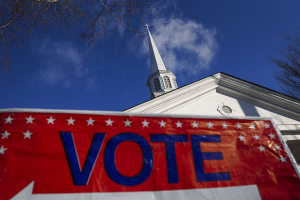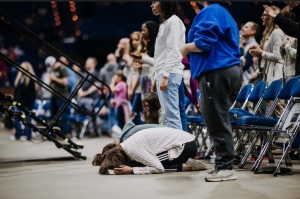10 things Christians should know about young widows and widowers

I had the misfortune of joining a somewhat rare group of people this past holiday season. Just after Thanksgiving, I became a widower at the age of 38. I have written about my experience previously.
It is somewhat rare. Most “widowed” demographic studies do not even measure “under 40” numbers, but rather begin measuring demographics of “under 50.” My pastor mentioned to me once that they have a meal for widows and widowers in the church. He said “I would invite you, but you would be the youngest by 25-30 years.” The Church doesn’t seem to know what to do with a young widow(er).
As a follow up to this, I think it would be helpful to describe the experience and how the Church could treat those like me differently. In my journey, I have come to know others in my shoes (under 40 and widowed), whom I have polled and interviewed in writing this piece. While this article draws mostly upon personal experience, many of these sentiments were suggested or shared by others who have been widowed at a young age.
1. Losing a spouse is an extremely lonely feeling. For many, the emotion is driven far more by the loss of connection than anything else. Yes, losing your spouse, the person you love most, is extremely hard. But it also disrupts your entire social routines and rhythms. You no longer have someone to come home to. Your weekend plans only involve your kids, but no “adult time.” This is especially true for those of us who work from home. I, personally, do not see another adult on most days, other than my children’s caretaker. It is extremely isolating. Early on, I was invited to people’s houses or to social events consistently. I valued this tremendously, as I did not feel like a burden when other people initiated.
2. As an extension to the first point, a widow(er)’s needs do not stop after the first month or two. The lack of social opportunity gets harder as other people have settled back into their normal routines. Keeping up with housework has gotten harder as less people ask “do you need anything?” Keep checking in. Keep inviting.
3. The hardest times are nights, weekends and holidays. Holidays can be the worst of these three, as they bring back emotions of what once was. But nights and weekends serve as a reminder of aloneness. At night, the house is quiet and empty. On weekends, you don’t have a partner with whom to share your activities. These are days/times to check in on a widow(er). Perhaps include them in your celebrations for holidays.
4. It would be helpful for members of the Church who are of the same sex as the lost spouse to step up as a “female influence” or a “male influence” for the children. This is challenge for us. It is hard for me to do things like buy clothes for my daughters, for example. Or to do their hair. Or to provide the feminine touch that my daughters used to get from my late wife. There is a significant void in their lives that needs to be filled.
5. Please do not compare our experience to those who have divorced. Yes, it is similar in that we now find ourselves single again and have the “single dad” or “single mom” moniker. But the circumstances are much different. With divorce, something unhealthy was occurring relationally. Many divorced people I have talked to are dealing with emotional trauma that is hurt inflicted by another. Others feel liberated. But our emotional trauma, often, involves the loss of a healthy and functioning marriage. The separation is not caused by hurtful actions or behaviors by our former spouse. Most widow(er)s have a positive memory of the marriage experience, where many divorced people do not. This is not to minimize the pain of those who experience divorce. Rather, it is just a different kind of pain.
6. Be very sensitive with your advice and suggestions. Some common suggestions are: “Use this opportunity to draw closer to God,” “Use this time to grow closer to your kids,” “Throw yourself into your work,” etc. Yes, these are all positive goals and can be productive. But our struggle is missing intimacy and human connection that was stripped from our lives. I personally have grown far closer to God than I was through this experience, but God doesn’t give hugs. My kids don’t offer stimulating conversation like an adult. My work doesn’t provide relational fulfillment. This advice feels very hollow, despite the good intentions. It is much better to just listen as we talk about the pain. A huge need is the ability to process.
7. Be patient with us. We are on an emotional rollercoaster. Do not expect us to be consistent. We may feel or think one way on a given day, then change our minds on another. We may feel good enough to provide emotional support to others on one day, while other days it may be too much.
8. And don’t expect anything of us for a while, emotionally or with “service” type opportunities. In conversations with widowed friends, this is more common than one might expect. Friends and family have a way of seeking emotional support from us in their own grief. But we feel overwhelmed already. We have taken over both the husband/dad and wife/mom duties of the household and parenthood. We are grieving the loss at a more day-to-day level than anyone else. It is difficult to have the emotional energy for others when we are already at capacity. In addition, while running a household and parenting solo, it is also difficult to do ministry service. Or anything that requires our time. This will come back eventually, but don’t expect it from us for a while.
9. Single unmarried people, generally, are underserved in the Church. Many Christians, myself included, married in their 20’s and stay in their marriages. I personally was unaware, but single Christians are isolated as a result. There are not many singles ministries for the “over 30” crowd. Studies are not geared toward unmarried adults. The Church needs to be more aware of this demographic, widowed or not.
10. Men are also underserved in the Church. This became apparent to me when I checked in on whether there were single dad ministries. I could not find one. When I inquired as to whether a “single mom” ministry could be converted to a “single parent” ministry, I was told that this would make the single moms uncomfortable. This very well may be, but this leaves a young single dad without a ministry or community. And as I stated above, I do not have the bandwidth to start a ministry myself in this phase of life. The Church needs to be more intentional about this.
Some of this may seem pointed. To be clear, this is not meant as a direct criticism of any specific church or person. Rather, because we are in an admittedly rare position, I do not think many have known what to do. Other widow(er)s I have talked to have said the same. The sore spots and suggested approaches listed above should serve as a guide for anyone who knows a young widow(er) with kids.
Curtis Schube is from the Harrisburg, Pennsylvania area and is a former constitutional and administrative law attorney and current executive director of a think tank. He also co-hosts "Man by Design," ( https://www.facetheculture.org/manbydesign) a Christian radio/podcast show focused upon men, the Church and culture.




























